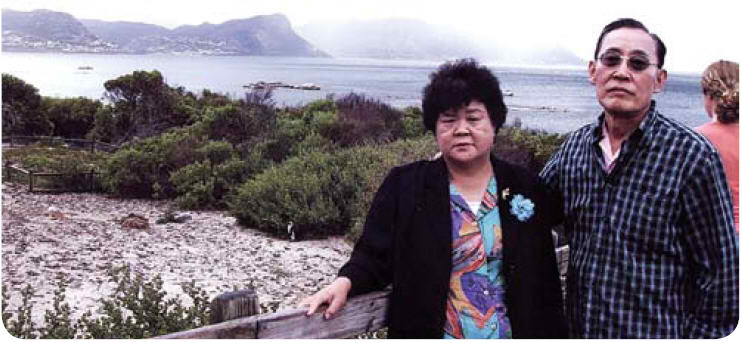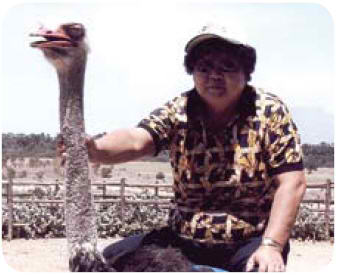Walking around the village where I live, I bumped into Mr. and Mrs. Chong Serp Chung. The reintroductions were followed by the inevitable “What are you doing nowadays?” To which Chong Serp (CS) replied, “teaching at a university, consulting work here and there, and traveling around.” Our next meeting was another unplanned encounter as we passed on a village path, and CS and his wife, Heja Lee Chung, invited me to drop by.
CS retired from ADB in 2002 with an offer to teach, which he intended to take up quickly. However, fate stepped in. On his last working day, Heja had to rush to the hospital in Manila with an aneurism in the brain. After two major operations in 3 days, Heja needed a lengthy recovery period and could not travel. Happily, her recovery has been remarkable—she is now very well indeed and can play golf.
Powering Up. CS found his services in high demand from his base in Manila, given his BS in electrical engineering, MS in industrial engineering and engineering economics, and PhD in commerce and international finance, plus 36 years of practical experience, including 24 with ADB. First, he took the offer from Korea Electric Power Corp. (KEPCO) as its adviser for overseas operations, and helped KEPCO in Seoul and KEPCO Philippines (KEPHILCO) to develop their projects. KEPHILCO had two projects at that time: The first was rehabilitating the Malaya power plant, which was down to producing only 200 megawatts (MW) from its installed capacity of 600 MW due to poor maintenance. KEPCO successfully restored the plant to 650 MW at a cost of about $210 million on a build-operate-transfer (BOT) basis. The other project was bringing onstream the new Ilijan power plant in Batangas using natural gas piped undersea from the Malampaya gas field in Palawan. Ilijan contributes 1,200 MW of power to the Luzon grid. CS also led KEPCO project missions to East Timor and Libya. And he visited the Ukraine twice in 2002 and 2003 as advisor to the government on energy conservation and efficiency.
Then Samsung Corporation in Seoul asked CS to be its adviser for overseas projects, which he has been doing for more than 6 years. During the summer of 2008, CS stayed in Honduras as the government adviser on national energy policy.
Imparting ADB Experience. In March 2005, CS turned to teaching at Chung-Ang University in Seoul, one of nine top schools in the Republic of Korea that offer a graduate program in international studies. This MA degree program was set up to effectively cope with globalization issues, in which the Republic of Korea is still behind despite being the 15th largest economy and the 9th largest exporter in the world. CS' services are in demand, because the Republic of Korea needs to increase its efforts at participating in globalization by improving its peoples’ understanding of other cultures and how they operate internationally, and by improving its English language competence. The entire program is taught in English. CS’ teaching, rather than being theoretical, is based on his firsthand knowledge and experiences from work at ADB and post-retirement activities, which he believes his students appreciate much. The specific courses CS teaches are “International Organizations and Project Development,” and “Project Management”—both areas in which he has had extensive experience.
 Heja and Chong Serp Chung, on safari. |
 Heja Lee Chung, riding an ostrich, on safari. |
Traveling Around the World. Among other trips, in January 2007, CS and Heja took an 18-day safari in Africa with friends—which CS lists as the most wonderful and unforgettable trip. A couple of pictures from the trip are shown here.
